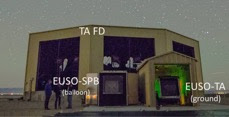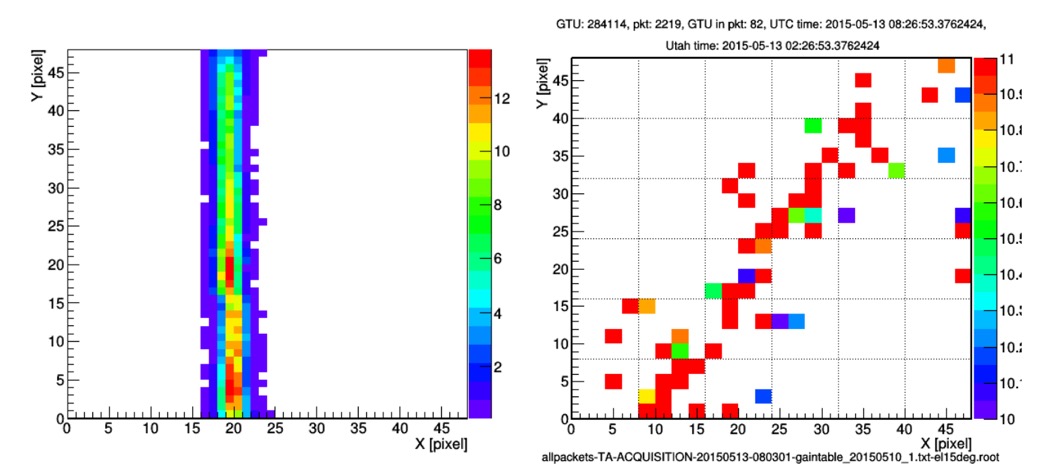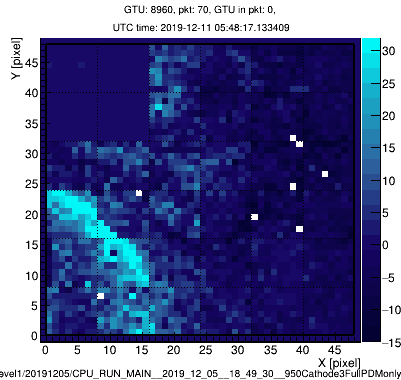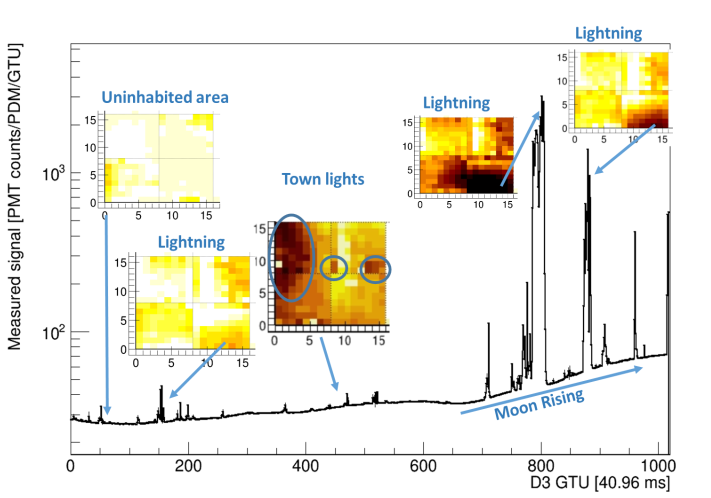EUSO-TA

EUSO-SPB and EUSO-TA during data takin in 2016, in front of Telescope Array Fluorescence detector, Utah.
EUSO-TA is a ground based detector located in front of the Telescope Array (TA) Fluorescence detector in Black Rock Mesa, Utah, USA (ref.1). It was installed in 2013 in its own building and has been upgraded in the following years. The installation is used to test the EUSO technology and study its response to cosmic rays and artificial sources in conjunction with the TA Fluorescence Detector (TAFD).
The EUSO-TA detector consists of two 1 m2 Fresnel lenses with a field of view of 11° × 11°. Light is focused onto a 2304 pixel, single photon counting Photo Detector Module (PDM), identical to the ones employed on the focal surface of K-EUSO mission. The performance of the detector has been and continues to be very good, with little (one photoelectron) electronic noise and a Point Spread Function (PSF) meeting the design expectations. In 2015 the measurement of first cosmic rays, meteors, and laser light was performed in conjunction with the University of Tokyo Institute of Cosmic Ray Research. In September 2016 we tested and calibrated the payload of the EUSO-SPB balloon experiment with a self-trigger. Data acquisition with EUSO-TA is expected to continue into 2019 with an automatic acquisition to increase the event statistics.
References:
1: Adams, J. H., et al. Ground-based tests of JEM-EUSO components at the Telescope Array site, “EUSO-TA”. Experimental Astronomy, 40:301-314, November 2015. doi: 10.1007/s10686-015-9441-6.




